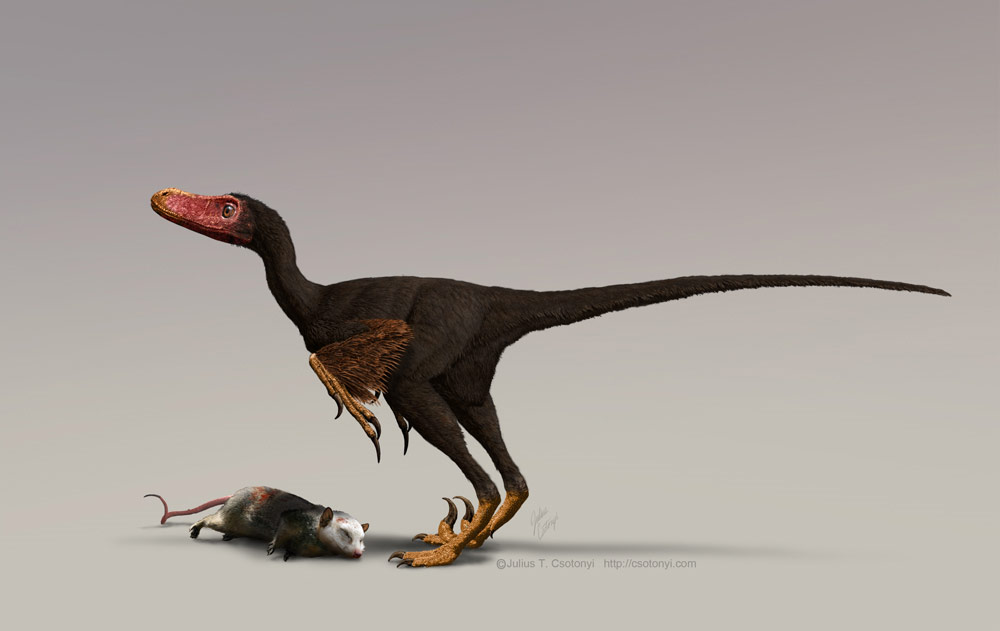What Saved the Dinosaurs: Scientists Sniff Out Origin of Birds

Get the world’s most fascinating discoveries delivered straight to your inbox.
You are now subscribed
Your newsletter sign-up was successful
Want to add more newsletters?

Delivered Daily
Daily Newsletter
Sign up for the latest discoveries, groundbreaking research and fascinating breakthroughs that impact you and the wider world direct to your inbox.

Once a week
Life's Little Mysteries
Feed your curiosity with an exclusive mystery every week, solved with science and delivered direct to your inbox before it's seen anywhere else.

Once a week
How It Works
Sign up to our free science & technology newsletter for your weekly fix of fascinating articles, quick quizzes, amazing images, and more

Delivered daily
Space.com Newsletter
Breaking space news, the latest updates on rocket launches, skywatching events and more!

Once a month
Watch This Space
Sign up to our monthly entertainment newsletter to keep up with all our coverage of the latest sci-fi and space movies, tv shows, games and books.

Once a week
Night Sky This Week
Discover this week's must-see night sky events, moon phases, and stunning astrophotos. Sign up for our skywatching newsletter and explore the universe with us!
Join the club
Get full access to premium articles, exclusive features and a growing list of member rewards.
The ancestors of modern birds might have survived the mass extinction that wiped out their dinosaur forebears by having a better sense of smell, researchers suggest.
As birds evolved from small, feathered dinosaurs, scientists had thought their sense of olfaction or smell got worse while their vision, balance and coordination improved for flight.
"Scientists thought that parts of the brain were being dedicated to these latter senses, while the region of the brain associated with olfaction deteriorated through evolution," said researcher Darla Zelenitsky, a paleontologist at the University of Calgary.
However, by analyzing skulls, one can deduce the size of the brain region devoted to smell. It turns out early birds such as Archaeopteryx probably had as good a sense of smell as dinosaur relatives known as theropods that were of similar size.
To see how the sense of smell might have changed as birds evolved, researchers analyzed 130 species of living birds, seven species of fossil birds and 20 species of nonavian theropod dinosaurs, which include carnivores such as velociraptors and giants such as Tyrannosaurus rex. The team concentrated on the dimensions of the animals' olfactory bulbs, the brain regions underlying smell.
The researchers found the sense of smell improved overall during the evolution of small theropods to modern birds, apparently only decreasing much later on in some lineages of birds less dependent on scent. The earliest birds such as Archaeopteryx had a sense of smell comparable to pigeons, while some "raptor" dinosaurs were as good as turkey vultures, birds well known for their keen noses.
This improved sense of smell, as well as larger brains overall, might have provided an edge that could explain why modern birds are still around and their dinosaur and archaic bird relatives are not.
Get the world’s most fascinating discoveries delivered straight to your inbox.
"Since some modern-day birds are known to use their sense of smell for foraging and for navigation, perhaps the combination of flight and larger brains — including larger olfactory bulbs — gave modern birds a competitive edge over archaic birds and other dinosaurs to survive this mass extinction," Zelenitsky told LiveScience.
The scientists detailed their findings online April 13 in the journal Proceedings of the Royal Society B.

 Live Science Plus
Live Science Plus










